THE Royal College of Surgeons Edinburgh (RCSEd) is the oldest surgical college in the world, first founded in 1505 with a Royal Charter granted by King James IV. Since then, the college has remained a pioneering institution in the field of surgery and dental care, among many others. The college has 30,000 members from over 100 countries and has its sights on expanding even further.
Malaysia shares a long history of partnership with RCSEd, which began two decades ago when specialists from the college were brought in to set up a video-assisted thoracic surgical training unit at the National Heart Institute in Kuala Lumpur. As the aging population of citizens in Malaysia increases, there would be a more urgent need for cardiothoracic surgeons, and a partnership with medical institutions around the world to improve the quality of care and provide specialist training remains vital.
Recent projections by the Ministry of Health indicate that cardiothoracic diseases are expected to rise to 10% by 2030 as the population of adults over the age of 65 increases to two million. At present time, Malaysia has 68 cardiothoracic surgeons to treat adults and 7 surgeons capable of performing paediatric cardiac surgery. As of March 31, there is a registered backlog of 1,905 patients awaiting surgery at the ministry’s cardiothoracic centres.
To address this shortfall and meet the medical needs of the Malaysian people, a pilot project focused on cardiothoracic surgery was set up between the Ministry of Health and RCSEd. Mr Pala Rajesh, the vice-president of RCSEd and a cardiothoracic surgeon by practice, spoke about the recent success of their pilot project, adapting to the challenges from the pandemic, as well as their inaugural international conference in Chennai later this year.
Pala is the first Indian vice-president to be elected to the Royal College of Surgeons of Edinburgh in the college's history. Originally from Chennai in India, he was Consultant Thoracic Surgeon at the Heartlands Hospital in Birmingham prior to his recent retirement.

The Vibes: How has Malaysia benefitted from a relationship with RCSEd? Could you speak more about this recent pilot project?
Pala Rajesh: In the year 2014, I was requested by then president of the college Ian Ritchie to go to Kuala Lumpur and speak to a delegation towards setting up a national training programme. This was in cardiothoracic surgery, a small specialty but it needed a lot of trainees because of the disease burden in Malaysia, such as coronary artery disease and lung cancer. Collaborating with the Malaysian Association for Thoracic & Cardiovascular Surgery (MATCVS), a national training programme with a curriculum that was adapted from the International Society for Computational Biology (ISCB) in the United Kingdom was set-up.
Candidates were interviewed and selected, with annual appraisal of their training years to track their progress. Finally in May 2022, nine candidates took the exit exam of which eight were successful. This was the culmination of a journey for me with Malaysia with good success which heralds the way forward for further training programmes. I have been in conversation with (Health Director-General) Tan Sri Dr Hisham Abdullah who has requested that we continue this relationship with the college and to look at training programmes in orthopaedics and in paediatric surgery.
TV: Over the course of the last three years during the pandemic, medical institutions everywhere were pushed to the limit and in Malaysia for instance there were high rates of burnout and some unfortunate cases that lead to suicide. What are some lessons and best practices our medical schools and institutions can adopt from countries overseas?
PR: This is a universal problem and is not unique to one country and I think that the medical profession took a huge hit simply because we are not used to relentless pressure. During the pandemic, hospitals all over the world were overwhelmed and the patients that were so ill of Covid had to be moved to intensive care units. Patients who came were intubated and ventilated and did not leave the unit. The nurses and intensivists did not get to know them. They had to be responsible of informing relatives of patients they have never seen before that their loved ones have passed on.
Now when this happens daily for months, you can imagine what the state of mind of the nursing staff, intensivists and anaesthetists will be because they have been working hard and yet still losing patients. Some of them are married to doctors and were instructed to stay in hotels to limit the dissemination of infection. Some of them did not get to see their children. When this is the state of play, you crash. The profession has taken such a profound hit that it is going to take some time to get out of this mental state of health. We can help by giving support, reassurance, and making sure that they receive counselling. It is going to be a long-term situation which we must deal with based on our cultural backgrounds.
_and_Professor_Rowan_Parks_with_the_President_of_RCSEd_Professor_Michael_Griffin_OBE_image_courtesy_RCSEd.jpg)
TV: Now that we have seen what happens when an infectious disease spread all over the world, are we prepared to handle a similar situation should it occur again?
PR: A little bit of history as to how Britain was able to get the vaccine going appropriately – during the Ebola crisis in Africa, Oxford took some time to get the vaccine done and they felt there were a lot of lives lost. Subsequent to that experience, they reflected and learnt and what they did was to develop a template. So, when people asked, how did they get the vaccine done within nine months, this was the reason because they were sort of prepared. Everyone from around the world published papers daily to disseminate information so researchers can continue doing their work. There is more preparation now then there was in the past and I think there has been a lot of collaboration in spite of competition.
TV: Could you share some of the projects and initiatives the college has planned for this year?
PR: The Royal College of Surgeons of Edinburgh is organising its first international conference that will be held in Chennai this October. We have appointed international ambassadors in all five continents of the world, and we are hoping to get them together to discuss what they will need in their own countries in the future, so that we can put in a place a strategy for the next five years.
We want to attract 1,200 delegates or more, over three days from all grades, levels, specialties, members, and non-members alike and provide a multidisciplinary professional forum where surgeons, dentists and healthcare practitioners can engage with peers from around the globe, discuss the most recent knowledge pertaining the impact of Covid-19 on their field of practice, and learn about innovations that emerged during the pandemic.
This is the most exciting project we have planned for the rest of this year.
***
The three-day conference with the running theme of 'Beyond Covid-19: Impact and Innovation' is set to take place from October 5 to 8. Dr Noor Hisham Abdullah will be among the many notable speakers attending. To participate or find out more here. – The Vibes, June 28, 2022



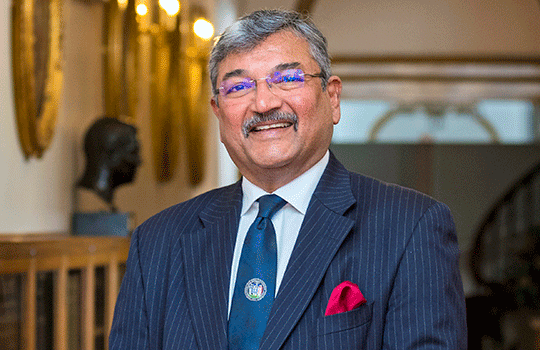
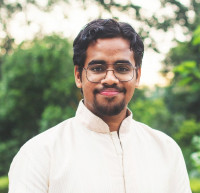

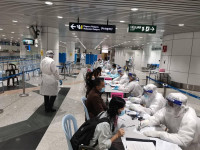
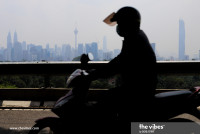
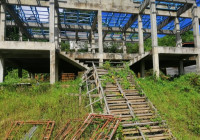
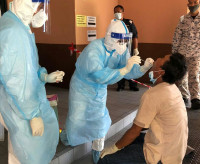
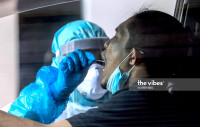

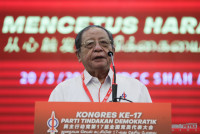
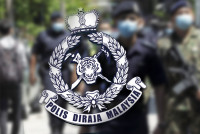


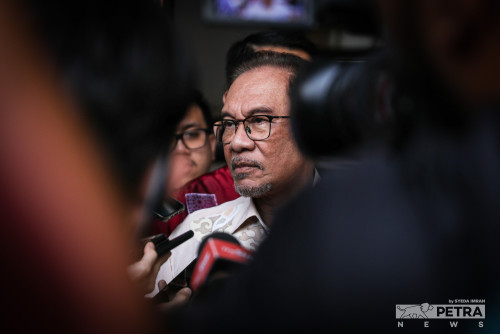


.jpg)

